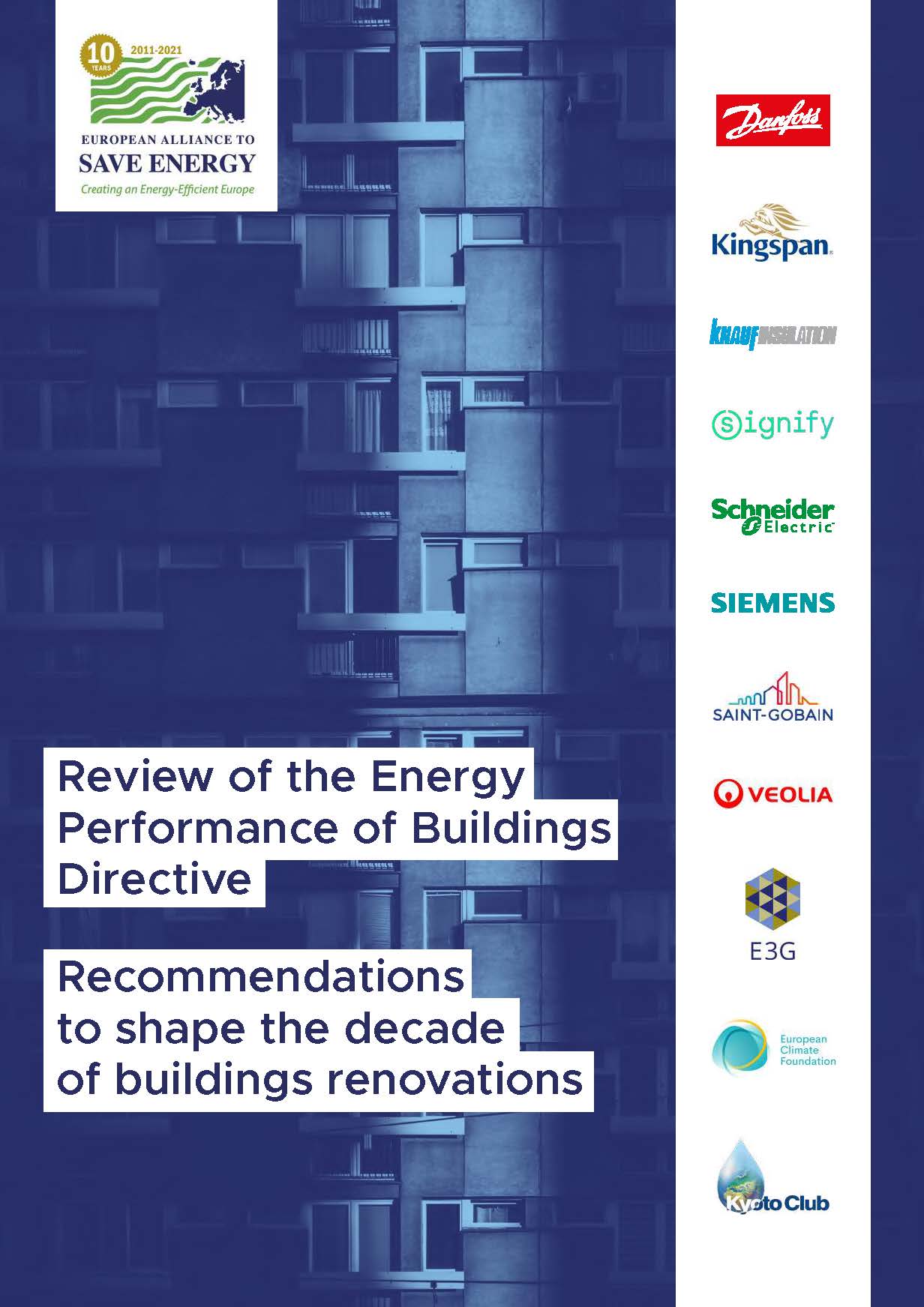
Reducing energy demand and increasing energy efficiency in the buildings sector is a prerequisite for achieving the EU’s energy and climate objectives. This position paper calls on the European Commission to revise the Energy Performance of Buildings Directive (EPBD), aligning its objectives with the European Green Deal.
The revision of the EPBD is a unique opportunity to increase energy savings, optimise energy consumption and reduce GHG emissions from the buildings sector.
In this respect, the EPBD should introduce new policy signals to stimulate a minimum of a 3% renovation rate per year combined with an average energy efficiency improvement of 75% across Europe. This will help the EU to reach its environmental goals while contributing to fast economic recovery, local job creation and delivering of multiple benefits to citizens.
Currently, building renovations occur at a slow pace in the European Union. Only 1% of the total building stock undergoes renovations annually, an insufficient rate to make buildings fit for the EU’s climate goals. To achieve the objectives of the European Green Deal, the decade 2020-2030 must be the witness of an unprecedented wave of renovations resulting in emissions cuts from buildings by 60% by 2030.
The paper presents seven recommendations aimed to:
- Acknowledge buildings as energy infrastructure and apply the Energy Efficiency First principle
- Introduce Minimum Energy Performance Standards for all the existing building stock
- Aim for energy efficient, flexible, and smart-ready buildings
- Promote a neighbourhood approach to maximise energy efficiency
- Update the Energy Performance Certificates, introduce digital Building Renovation Passports and explore the link with the Digital Building Logbook
- Provide more and better technical assistance and build capacity to increase the demand of renovation projects
- Ensure all new buildings are both highly efficient and fossil free from 2025 onwards
